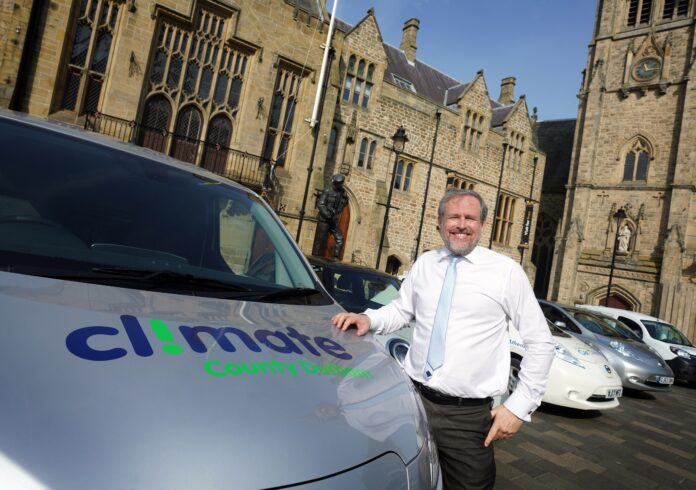County Durham will be one of nine areas to benefit from a £20 million scheme to improve electric vehicle (EV) infrastructure.
Durham County Council has been successful in its bid to be part of the government’s highly sought-after Local EV Infrastructure (LEVI) pilot scheme, which will see the multi-million-pound funding shared between the winning areas.
The £1.25 million funding allocated to the county will be used to create new EV charging infrastructure for residents, from faster on-street charge points to larger petrol station-style charging hubs.
It will see 100 new EV charge points installed across the county, particularly in rural areas where there is less infrastructure and in areas where residents do not have access to off-street parking.
Cllr Mark Wilkes, Durham County Council’s Cabinet member for neighbourhoods and climate change, said: “We are delighted to have been successful in our bid for the LEVI funding. This was a highly competitive scheme, so we are pleased that our EV plan has been recognised as one that will deliver high levels of success.
“The North East has only 3.1 per cent of the UK’s charge points, the lowest of any British region, compared to London and the South East with 42.5 per cent. This funding will enable us to increase EV infrastructure and help bridge that gap.
“The scheme will also help us achieve our ambitious targets to reduce the county’s emissions by making the possibility of owning an EV more accessible to our residents, encouraging more people to make the switch away from fuel-powered vehicles to a lower-carbon option.”
Improving EV infrastructure is a key aim within the council’s Climate Emergency Response Plan in which it has improved its climate targets with the new aims of achieving net zero in its operations by 2030 and making the county carbon neutral by 2045.
The council has already successfully delivered the installation of hundreds of new EV charge points through its Scaling on Street Charging Infrastructure Project (SOSCI) Weardale Electric Vehicle Accelerator and Regional Electric Vehicle Unified Plan.
SOSCI overachieved on its targets despite the challenges caused by the coronavirus pandemic, with 160 charge points installed – 60 more than the 100 originally planned.
The council is also in the process of creating 50 charge points through its Durham Other Charge Points project and will begin installing points through the new LEVI funding once this is complete.

























